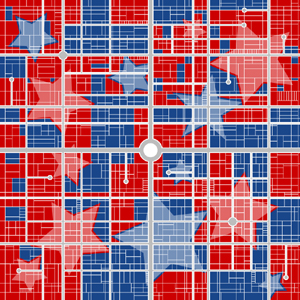10th Circuit strikes down ban on encouraging or inducing a noncitizen to come to US illegally
First Amendment
10th Circuit strikes down ban on encouraging or inducing a noncitizen to come to US illegally
July 15, 2022, 8:54 am CDT
Image from Shutterstock.com.
A federal appeals court has struck down as overbroad a provision of a law that makes it a crime to encourage or induce a noncitizen to enter or reside illegally in the United States.
The Denver-based 10th U.S. Circuit Court of Appeals ruled Wednesday in a 2-1 decision. Judge Nancy L. Moritz wrote the majority opinion, joined by Judge Scott M. Matheson Jr. The Volokh Conspiracy has highlights while Reuters and Law360 have coverage.
The provision at issue bans inducement or encouragement if it is done with knowing or reckless disregard of the fact that the immigrant would be entering or residing in the United States illegally.
The language is so broad that it sweeps in even “abstract advocacy of illegality,” speech that is protected by the First Amendment, Moritz said. “It is reasonable to conclude that vast amounts of protected speech would be swept up in a ‘criminal prohibition of [such] alarming breadth,’ ” she wrote.
A dissenter, Senior Judge Bobby R. Baldock, argued the provision could survive if it is given a limiting construction. “When reasonably construed,” Baldock wrote, the law “makes it a crime to solicit criminal violations of immigration law.”
The court ruled in the prosecutions of two men accused in a scheme to employ noncitizens in construction jobs.
The ruling creates a circuit split, according to Reuters. The Richmond, Virginia-based 4th U.S. Circuit Court of Appeals upheld the law in 2011.
The San Francisco-based 9th U.S. Circuit Court of Appeals also struck down the provision in 2018 in a ruling vacated by the U.S. Supreme Court. The unanimous high court ruled in United States v. Sineneng-Smith that the 9th Circuit should not have addressed the overbreadth issue because it was not raised by the defendant.
The 10th Circuit case is United States v. Hernandez-Calvillo.






